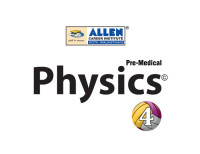
Solved Problems in Classical Electromagnetism: Analytical and Numerical Solutions with Comments
J Pierrus
Classical electromagnetism - one of the fundamental pillars of physics - is an important topic for all types of physicists from the theoretical to the applied. The subject is widely recognized to be one of the most challenging areas of the physics curriculum, both for students to learn and for lecturers to teach. Although textbooks on electromagnetism are plentiful, hardly any are written in the question-and-answer style format adopted in this book. It contains nearly 300 worked questions and solutions in classical electromagnetism, and is based on material usually encountered during the course of a standard university physics degree.
Topics covered include some of the background mathematical techniques, electrostatics, magnetostatics, elementary circuit theory, electrodynamics, electromagnetic waves and electromagnetic radiation. For the most part the book deals with the microscopic theory, although we also introduce the important subject of macroscopic electromagnetism as well. Nearly all questions end with a series of comments whose purpose is to stimulate inductive reasoning and reach various important conclusions arising from the problem. Occasionally, points of historical interest are also mentioned. Both analytical and numerical techniques are used in obtaining and analyzing solutions. All computer calculations are performed with MathematicaCO and the relevant code is provided in a notebook; either in the solution or the comments.
Topics covered include some of the background mathematical techniques, electrostatics, magnetostatics, elementary circuit theory, electrodynamics, electromagnetic waves and electromagnetic radiation. For the most part the book deals with the microscopic theory, although we also introduce the important subject of macroscopic electromagnetism as well. Nearly all questions end with a series of comments whose purpose is to stimulate inductive reasoning and reach various important conclusions arising from the problem. Occasionally, points of historical interest are also mentioned. Both analytical and numerical techniques are used in obtaining and analyzing solutions. All computer calculations are performed with MathematicaCO and the relevant code is provided in a notebook; either in the solution or the comments.
Categorías:
Año:
2018
Editorial:
Oxford University Press, USA
Idioma:
english
Páginas:
656
ISBN 10:
0198821913
ISBN 13:
9780198821915
Archivo:
PDF, 17.08 MB
IPFS:
,
english, 2018
 Amazon
Amazon  Barnes & Noble
Barnes & Noble  Bookshop.org
Bookshop.org  Convierte archivos
Convierte archivos Más resultados de búsqueda
Más resultados de búsqueda Otros beneficios
Otros beneficios 







































































































